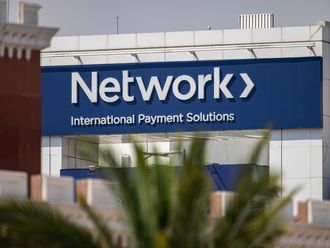Saudi Arabia has been at the centre of attention for more than a year now. While low oil prices question the sustainability of its previous business model, the Kingdom currently faces an economic challenge, notably addressed by its new Vision 2030 Project, and the need to be better understood by the foreign media and public opinion. Is there a solution that could address these two problems all at once?
Islamic finance has the potential to diversify Saudi Arabia’s economic mix whilst being a means of soft power. Islamic finance could diversify Saudi Arabia’s economic mix, as oil stood for 87 per cent of the country’s revenues in 2015, which is 42 per cent of national GDP. Additionally, if Saudi Arabia did decide to strengthen its national network of Islamic banks, it may enable its oil revenues to stay in the books of national banks rather than being invested or spent abroad.
What makes Islamic finance more interesting than other sectors is its intrinsic religious dimension. Usury, and such other prohibited (haram) activities and speculation are banned. Islamic bank customers consider themselves part of the same community, sharing a set of values that redefine priorities (faith and ethics over profits, simply put). Such a feeling of belonging is unique and cannot be found in any other conventional industry. At a time when many companies insist on creating a “community” of customers, Islamic finance distinguishes itself by relying on a fourteen centuries old one.
Clearly, Saudi Arabia is a natural and legitimate leader for the Islamic finance sector. Lack of standardisation in Islamic finance is a key challenge facing its growth globally. Standard setting organisations are numerous, geographically spread out, and are still in the works of redrafting official guidelines. Consequently, there is an interpretation gap and scholars within Sharia Boards may share different opinions. Only a powerful regional leadership, such as Saudi Arabia, can address this.
Political will
Saudi authorities can push forward collaborative work with the existing standard setters in the industry such as (AAOIFI, IILM, IFSB, IIFM …) and voice one cross-border vision. Intensifying common workshops and merging these complementary organisations into one Saudi entity would clarify the sector’s dos and don’ts. Setting up a certification system for institutions and teaching programs would enhance transparency. This would in turn simplify national regulators’ mission, thus relieve institutions from some regulatory bans.
Once this vision materialises, further educating future scholars and employees would ease its applicability. The country already has numerous religious studying programs and a knowledgeable population, with a whopping literacy rate of 87 per cent. Does Saudi Arabia have enough time and capacity? Yes. It still has access to large capital buffers from oil revenues, and the age pyramid shows that an important supply of students who can be oriented towards new programs, given that 47 per cent of its population is below 24.
However, Saudi Arabia would also have to address possible feelings of defiance should it choose to export Islamic financial services, even on a regional scale. One option would be to communicate on its ethical aspects, as people are sensitive to a Wall Street-driven economy based on debt. It could thus embody an economic counter-model.
Specialisation
Another way would be to start focusing on “corporate” Islamic finance, which is more low profile than retail for the public opinion, but just as much interesting to develop. This would require less communication and would open up some doors. It would also mean that there is room for specialisation, which in turn could be optimised with a certain level of regional cooperation.
Indeed, GCC countries have various degrees of experience but offer a similar range of products. Bahrain for example already is a strong centre of expertise and may be interested in broadening its market reach. Specialisation avoids risks of cannibalisation, fosters competitiveness, and may help manage costs. Regional cooperation could also grow market size and improve the credit quality of Islamic banks through asset diversification.
Sarah Spitz, Student at the Paris Institute for International Relations IRIS










